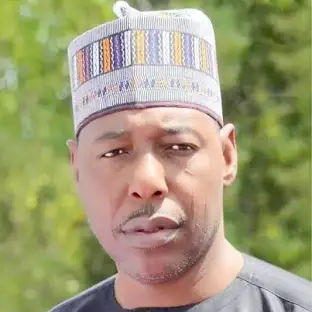Borno State Governor, Prof. Babagana Zulum, has called for immediate and coordinated action to tackle the growing effects of climate change on agriculture across Africa.
Speaking on Monday at the 6th African Regional Conference on Irrigation and Drainage in Abuja, Zulum said the continent stands at a critical juncture between vulnerability and resilience.
He emphasised the importance of inclusive irrigation systems and robust strategies for food production.
“Across sub-Saharan Africa, nearly 65 per cent of farmland relies on rainfall. But rainfall patterns have changed drastically. Seasons are shorter, droughts are harsher, and floods are more frequent,” he said.
Citing the World Bank’s 2023 Climate Smart Agriculture Report, Zulum noted that rainfall in the Sahel had shifted by 20 to 30 per cent over the last decade.
“The consequences are severe. The Food and Agriculture Organisation (FAO) projects up to a 50 per cent drop in crop yields by 2030 if current trends persist. That’s not just data — it’s a direct threat to food security, public health, and millions of lives,” he warned.
Despite contributing less than 4 per cent to global greenhouse gas emissions, Africa suffers disproportionately from climate change, he noted.
According to the Intergovernmental Panel on Climate Change (IPCC), the region has seen a 30 per cent increase in extreme weather events since the 1990s.
“One of the clearest indicators is Lake Chad, which has lost over 90 per cent of its volume since the 1960s. Irrigation is no longer a choice — it’s essential,” Zulum said.
He advocated for a shift from rain-fed farming to climate-smart agriculture, supported by innovative and inclusive irrigation technologies.
“Innovation must be accessible. Smallholder farmers, particularly women and youth, must be at the centre of this transformation,” he added.
Zulum said Borno State had already begun efforts to rebuild its agricultural base through sustainable irrigation practices, but called for a broader, Africa-wide approach.
“Today marks a step toward a unified African vision for irrigation and water governance. It will require bold reforms, investment, and inclusive planning,” he said.
He appealed to development partners to support locally driven solutions.
“We don’t seek dependency, but strategic partnerships. Let’s build systems that can endure climate shocks and restore dignity to our people.”
He urged participants to leave the conference with a renewed commitment to expanding sustainable solutions, addressing gaps, and driving continental resilience in agriculture and water management.
The conference runs in Abuja until April 17, with technical sessions, policy discussions, and field tours of irrigation sites across Nigeria.
(NAN)


